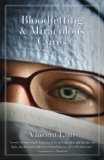Summary | Excerpt | Reading Guide | Reviews | Beyond the Book | Readalikes | Genres & Themes | Author Bio

Stories
by Vincent Lam
Instead, she said, “I’ll jinx myself, talking as if I’ll
get in. Don’t say ‘Doctor Ming’ or it’ll end up being a
joke.” She looked at her feet and said, as Karl had once
told her, “We have to dissect your study techniques.”
The following day, Ming went through Fitzgerald’s
December finals and pointed out that he had mostly
lost marks through a flagrant disregard for testable
trivia. She introduced him to her scheduling system, in
which each week was divided into a chart with halfhour
time slots.
Monday
7:00: Wake up, wash.
7:30: Breakfast and pre-read a lecture chapter.
8:00: Bus to school.
8:30: Lecture.
9:30: Pre-read next lecture.
10:00: Second lecture.
11:00: Review morning lecture tapes while eating lunch.
12:30: Relax.
13:00: Third lecture.
Ming crossed out each time slot as it was completed.
Fitzgerald’s note taking had previously been limited
to what he felt was conceptually relevant, summarized
by diagrams. Often, details were not included in the
diagrams because they did not seem important to him.
A tape recorder and a yellow highlighter were the core
of Ming’s system. After each lecture, she listened to her
tape of it and ensured that every testable fact mentioned
in the lecture was included in her notes. While
studying, she highlighted notes as she committed them
to memory, until her entire notebook was a glaring
neon yellow.
“It’s not that concepts are unimportant,” Ming reassured
Fitzgerald, “it’s simply that they’re not essential to
scoring top marks.” She had mentioned that her cousin
Karl was a surgical resident in Toronto, but did not
explain that this was Karl’s study system. Why should
she tell Fitzgerald, an “academic friend,” everything?
Each night they spoke on the telephone—always at
the end of the evening so that there was no disruption
of the sacred studies, nor a time limit. Conversations
began with questions about the day’s lectures, but
veered off more and more often so that they had to
remind each other of their primary obligation to help
the other study. They talked about what they would do,
see, and allow themselves once they had fulfilled their
delayed gratification of becoming doctors. Ming
thought of the two of them doing these things together,
far away from her family, yet she was careful not to refer
to “we” while discussing these fantasies. Although
everything was fragile and crucial right now, it would
all be perfect once they achieved the state of being medical
students. It floated before them like a transcendental
and elusive plane of existence. They allowed that it
would be a challenging profession, but it felt obvious
that once admitted, the difficult thing would be done.
Occasionally, they ate lunch in restaurants that did
not have many windows. Ming was careful to place
textbooks on the table, so that each other’s presence
could be easily explained if she was seen by any of her
cousins or family’s friends, who seemed to be everywhere
on campus. Dinner or a movie were out of the
question. Between classes, they studied in vacant classrooms.
Once, while looking for an empty classroom,
they both reached for an elevator button at the same
time, and after their arms brushed, warm, went silently
into the room, sat down, opened their books, and didn’t
speak for an hour.
At night, the phone sometimes clicked softly, and
then the sound became hollow with a shadow of
breathing. When this occurred, Ming stopped talking
and waited for the phone to click off. Fitzgerald learned
to do the same. If the other line did not click off after
several moments, Ming and her father would converse
briefly in Cantonese, and then she would say to
Fitzgerald in a voice that was halfway between meek
library mouse and breathless seducer, “Thank you for
helping me with my study problems,” and all three
parties would hang up.
The above excerpt is the complete text of the short story "How To Get Into Medical School, Part 1" , pages 1-30 of Bloodletting & Miraculous Cures. Copyright (c) Dr. Vincent Lam, 2007. Reproduced with permission of the publisher. All rights reserved.
Your guide toexceptional books
BookBrowse seeks out and recommends the best in contemporary fiction and nonfiction—books that not only engage and entertain but also deepen our understanding of ourselves and the world around us.